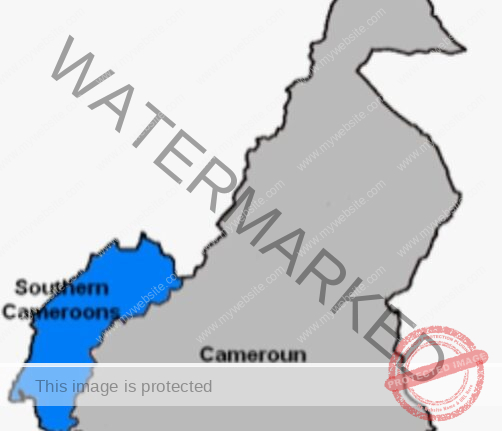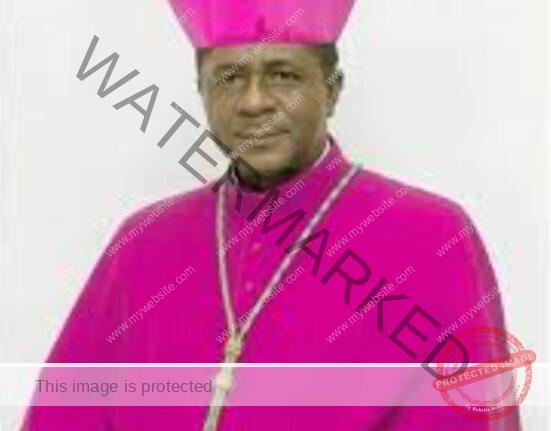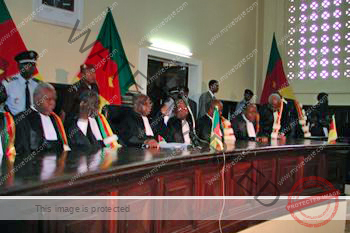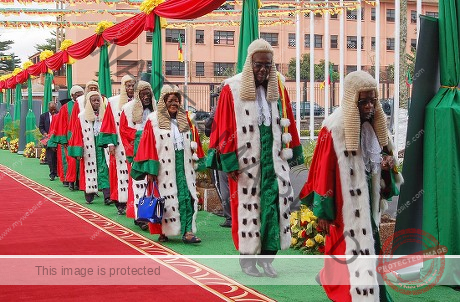CD Mbode Charles, Captain Sokane, OP2 Leudjo Guy and Adjudant Chief Mpondo, the key actors in the kumba kidnapping network.
By The Independentist Editorial Desk
A recent whistleblower account from Kumba has pulled back the curtain on a dangerous and deeply troubling alliance: senior Francophone security officers allegedly colluding with criminal kidnapping networks. The testimony—brave, specific, and damning—should serve not only as an alarm to the people of Kumba, but also as a wider indictment of how Southern Cameroons continues to be governed under La République du Cameroun.
According to the uniformed officer who shared the report, key figures including Commissioner CD Mbode Charles, Captain Sokane, and Gendarmerie operatives like OP2 Leudjo Guy and Adjudant Chief Mpondo are implicated in schemes involving kidnappers and scammers. Reports suggest these officials release apprehended criminals, share in extorted ransoms, and operate with the confidence that they are protected from above.
This is more than a local scandal. It is a window into a system that is failing—and one that was never built to protect Ambazonians in the first place.
A Colonial System by Design
This kind of breakdown in law and order is not a glitch; it is the predictable result of a system imposed on Ambazonia since 1961 without consent, without a treaty of union, and without constitutional legitimacy. While some may see these revelations as the result of individual corruption, the pattern points to a deeper political reality: Southern Cameroons is governed not as a partner in a union, but as a territory under administrative and military occupation.
Francophone appointees dominate command structures in Ambazonia. Local officers with integrity are often sidelined. The voice of the people is drowned out in favour of centralized control from Yaoundé. In such an environment, elections do not represent democratic hope—they serve as tools of continued domination.
A Better Path: Self-Governance and Non-Participation
This is why Dr. Samuel Ikome Sako’s long-standing policy of non-participation in Cameroon’s electoral process remains not only valid, but vital. His government-in-exile has consistently maintained that Ambazonians should not legitimize a system that excludes them, exploits them, and uses elections as a tool of assimilation.
To be clear, this position is not anti-democratic. It is pro-accountability, pro-justice, and pro-sovereignty. It is a call for Ambazonians to invest in building their own institutions, to strengthen local governance in liberated areas, and to use international legal frameworks to press their case for self-determination.
Some may argue that elections are the only peaceful way to bring change. But history—and the lived experience of Ambazonians—tell another story. From the stolen election of 1992 to the repressive crackdowns following peaceful protests in 2016, the system has proven time and again that it cannot be reformed from within.
A Moment of Clarity, Not Confusion
The Kumba revelations should not leave us feeling helpless—they should sharpen our resolve. There are still brave officers willing to speak the truth, and there are still many communities resisting quietly but effectively. But real change will only come when we stop lending legitimacy to systems that were never designed to serve us.
This is not a moment to re-enter a broken framework. It is a moment to double down on our path to freedom.
Ambazonians have been burned before—by false promises, empty ballots, and violent repression. This time, we must not be fooled.
The Independentist Editorial team
August 2025





















Leave feedback about this